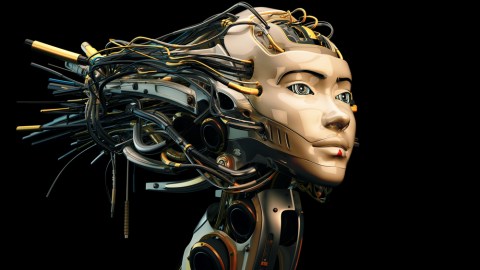Artificial Intelligence: From Turing Test to Tokyo Test

Within the field of artificial intelligence, a new Japanese initiative promises to further blur the line between human and machine. A group of AI researchers at Japan’s National Institute of Informatics just set a new goal: create an artificial intelligence program capable of passing the nation’s most difficult college entrance exams – including the entrance exam at the University of Tokyo. If an AI program can trick college admissions officers into thinking that it’s a human – it would mark one of the greatest accomplishments yet for artificial intelligence.
The Tokyo Test, of course, is just the latest in a long line of tests designed to prove that a computer can “think” and exhibit the types of behaviors and responses that are considered “human.” The original test, of course, is the famed Turing Test from 1950, which essentially started as a thought experiment. As Alan Turing conceived it, a computer should be considered “human” if it could imitate the behavior of a human being for a long enough time to convince an unbiased third party that it’s human.
As the Turing Test was originally conceptualized, an interrogator asks two participants a series of increasingly difficult natural language questions with the aim of determining which of them is the human and which is the computer. If, at the end of the test, the interrogator can not tell which is human and which is machine, then the computer has passed the test. That’s actually harder than it sounds, despite all the efforts made since then to construct just such a thinking machine.
Passing the Tokyo Test, of course, would be significantly more difficult than the Turing Test. A machine would have to do more than just convince a human that it can “pass” as a human for a predetermined amount of time – it would have to think like a human across a wide variety of disciplines, from history to math to reading comprehension. It would have to be able to write an essay. Even one of the IBM researchers behind the Watson program that tackled Jeopardy! noted that this would be more than just your standard, garden variety artificial intelligence project. The head of the Japanese project calls it “stupendously big and stupendously difficult.”
And, yet, the Japanese researchers plan to have a working prototype of a “thinking” machine capable of passing the Tokyo Test by 2021.
What’s interesting in all this, of course, is how humans continually define upwards what is demanded of machine intelligence. Every time an artificial intelligence program comes close to passing the Turing Test, we hastily move the goalposts even further away – or change the rules completely by inventing a new test to pass. Now, with the Tokyo Test, we’re moving the goalposts even further, to suggest that just passing a Turing Test is not a sign that a machine can “think.” Now it’s got to pass a college entrance exam and convince a bunch of seasoned college admissions officers that it is actually one of the smartest 18-year-olds in Japan.
You can see what’s next. It won’t just be enough to have one of the sharpest 18-year-old minds in the nation; in order to prove that it can think, it will have to prove that it can get into additional universities, maybe some place like Princeton or Yale. Then, it will have to prove that it can graduate from that university. Then, well, the goalposts can be moved ad infinitum to prove that computers can never catch up with humans.
A funny thing happens, though, once you start to mix together artificial intelligence and philosophy. There is likely never to be the point that we consider machines to be the equal of humans. Even when they are “smarter” than us, we will judge them by a whole host of other factors – like the ability to possess emotions, or creativity, or some other trait that we consider to be uniquely “human.” At a certain point, though, the line between man and machine will have forever blurred. Who knows, maybe sometime after 2021 (when the Tokyo Test will have been passed), machines may start giving out Turing Tests to humans, to prove that we’re as smart as they are.
image: Stylish robotic geisha / Shutterstock





